What Do Cockatiels Eat in the Wild? A Guide for Cockatiel Lovers
Discover what cockatiels eat in the wild with our guide. Learn about their natural diet to enhance your pet's feeding routine. Enjoy reading!

Key Takeaways:
- Wild cockatiels have a varied diet primarily consisting of seeds, fruits, and greens.
- Understanding their natural diet helps in providing a balanced diet for pet cockatiels.
- Seasonal changes significantly influence the food availability and diet of wild cockatiels.
Cockatiels, with their charming personalities and distinctive crests, are among the most popular pet birds. But have you ever wondered what these birds eat when they're not in our living rooms but in the wild? Their diet is crucial not only for their survival but also provides insights into how to feed pet cockatiels properly.
Natural Diet of Wild Cockatiels
Understanding what a cockatiel eats in their natural Australian habitats is crucial for ensuring they get a balanced mix of nutrients. In their natural Australian habitats, wild cockatiels eat a range of foods that ensure they get a balanced mix of nutrients. Primarily, these birds feed on various grass seeds, which are abundant in their environment. These seeds provide the carbohydrates and fats necessary for energy. However, their diet is not limited to seeds alone; they also consume leaves, flowers, and sometimes even insects, which provide protein and other nutrients.
During certain times of the year, especially when raising young, cockatiels might increase their intake of protein-rich foods. This adaptation helps meet the higher nutritional demands during these critical periods. The ability to switch between food sources depending on availability and nutritional needs showcases the flexibility of their diet in the wild.
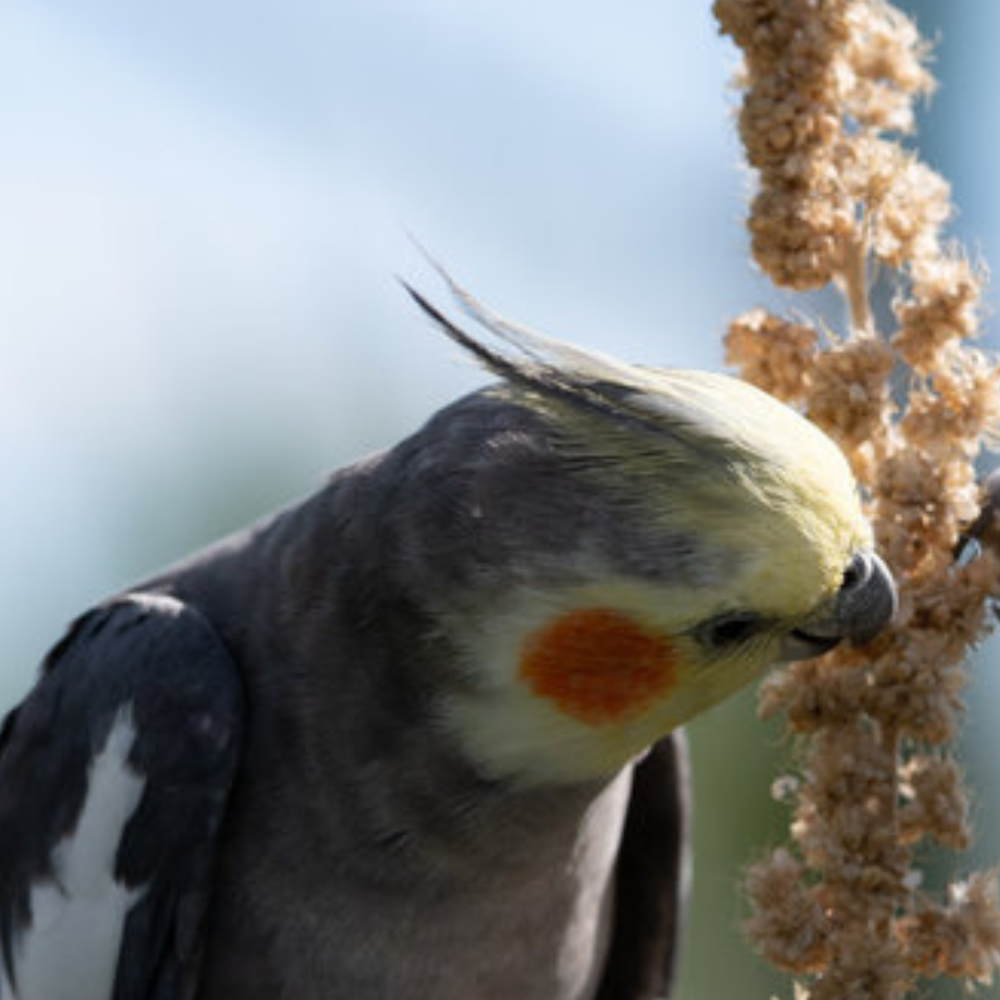
Seasonal Variations in Diet
The diet of wild cockatiels isn’t static but changes with the seasons. During the rainy season, when water is plentiful and plants are in bloom, these birds have access to a variety of greens and sometimes even eat fruit. This not only diversifies their diet but also increases their intake of vitamins and minerals, which are crucial for their overall health.
Conversely, in drier seasons, wild cockatiels might rely more heavily on seeds, which are less perishable and can be stored more easily in their bodies as fat. This natural cycle of dietary change helps them to maintain their health throughout different environmental conditions, ensuring they have the energy reserves needed to survive.
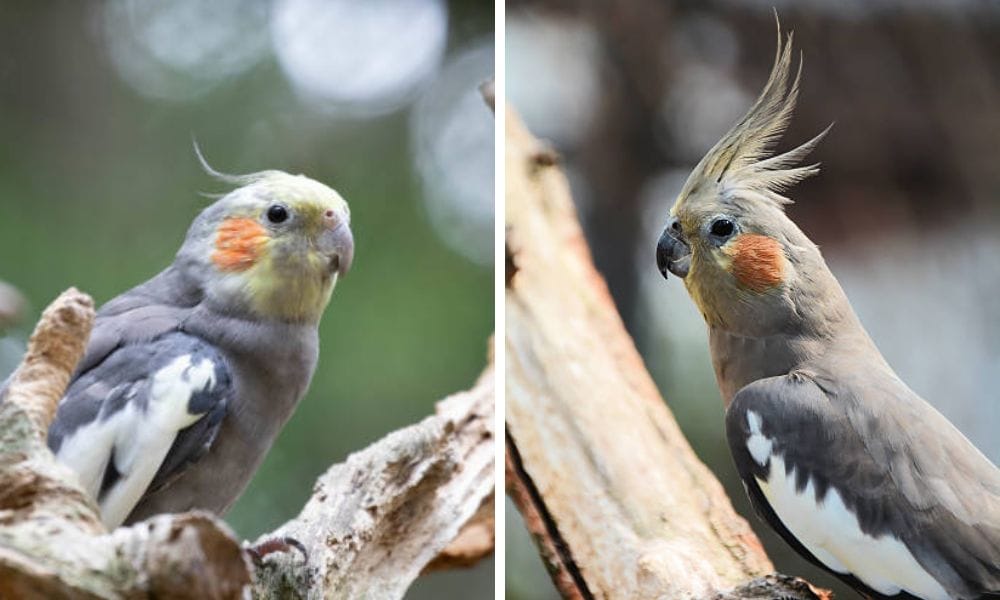
Dietary Supplements and Their Role
The Importance of Supplements in a Cockatiel's Diet
While wild cockatiels eat a varied diet, it's crucial to understand that not all necessary nutrients may be available in their natural food sources. This is where dietary supplements play a vital role. For pet cockatiels, especially those on a seed-based diet which holds very little nutritional value, adding supplements can prevent nutrient deficiencies. Supplements such as calcium and specific vitamins can be added to their food to ensure a well-balanced diet. This mimics the diverse intake they would naturally get from their wild environment, promoting better health and reducing the risk of common health problems.
Choosing the Right Supplements for Cockatiels
When considering supplements for cockatiels, it's essential to opt for those that cater specifically to the needs of birds. Powdered supplements can be easily mixed into moist food, ensuring that the bird receives its necessary intake without much fuss. However, cockatiel owners must be cautious about the quantity and type of supplements used. Over-supplementation can lead to health issues just as deficiency can. It's advisable to consult with a vet to understand the specific needs of your pet cockatiel, especially during different life stages such as egg-laying or raising young. Cockatiels fed on soft sorghum and wheat seeds whenever these were available, but appeared to take less grain and move to other foods, i.e. grasses, as the cereal crops matured.
The Role of Fresh Fruits and Vegetables in a Cockatiel's Diet
When pondering what do parrots and cockatiels eat in the wild, it's crucial to recognize the significant role that fresh fruits and vegetables play in their diet. In their natural habitat, wild cockatiels often feast on a variety of fruits and leafy greens, which provide essential vitamins and minerals. These nutrients are vital for maintaining good health and preventing diseases. For pet cockatiels, incorporating fresh fruits like apples and vegetables such as carrots into their daily diet can mimic these natural eating habits and ensure a well-balanced diet.
However, not all fruits and vegetables are safe for cockatiels; some can be potentially toxic. It's important for cockatiel owners to avoid offering avocado, which can cause ill health, and fruits with high citrus content that might upset their stomach. Instead, opt for milder, pale vegetables and softer fruits. Always wash these thoroughly to remove any pesticides or chemicals, and cut them into manageable pieces to prevent choking. This careful selection helps mimic the nutritious food items that wild cockatiels would select, promoting a healthier lifestyle for pet birds.
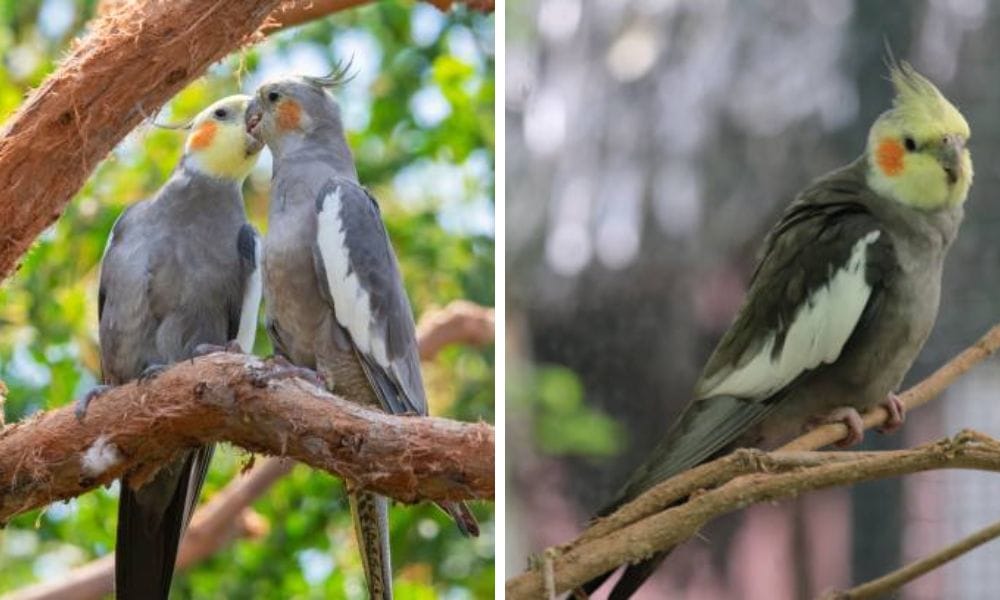
The Role of Millet in a Cockatiel's Wild Diet
Millet is a staple in the diet of wild cockatiels, particularly appreciated for its high nutritional value and ease of consumption. In the wild, cockatiels often flock to areas where millet grows abundantly, pecking at these grass seeds with gusto. This preference can be attributed to millet's rich supply of carbohydrates and proteins, which are essential for their energy needs. Moreover, millet seeds are small and easy for cockatiels to handle, making them an ideal food item for both adult birds and their chicks.
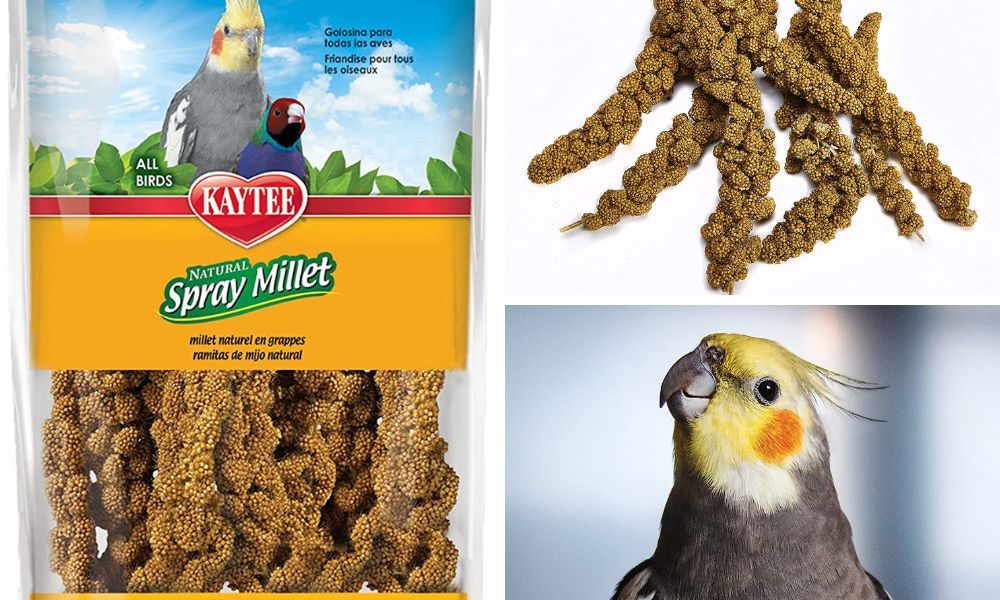
bird's diet
Understanding the significance of millet in the wild helps pet owners replicate a more natural diet for their captive cockatiels. Incorporating millet into the daily diet of pet cockatiels can help in converting seed-eating birds to a more varied diet. It's not just about providing a single food item but about mimicking the variety and nutritional balance that millet offers in the wild. This approach not only caters to the bird's nutritional needs but also stimulates their natural foraging behavior, which is crucial for their mental and physical health.
The Role of Seeds in a Cockatiel's Wild Diet
When considering what wild birds eat in the wild, it’s important to note that cockatiels eat seeds as a substantial part of their diet. Wild cockatiels primarily feast on a variety of grass seeds, which provide the bulk of their nutritional intake. These seeds, naturally found in their arid and semi-arid habitats, are rich in carbohydrates and fats, essential for energy. However, it’s crucial to note that while seeds are a significant component, relying solely on them can lead to nutritional imbalances. This is why observing a diet that mimics their natural intake is vital for pet cockatiels.
In contrast to commercial seed mixes often used by pet owners, which can contain sunflower seeds and other items with very little nutritional value, the seeds in a wild cockatiel’s diet are typically more varied and nutritious. These include softer seeds from native grasses and sometimes even millet seed, which is closer to what they would naturally consume. For pet birds, converting seed-eating birds to a more formulated diet that includes pelleted food alongside seeds can help mimic the nutritional balance found in the wild, promoting better health and avoiding issues like vitamin deficiencies or obesity.
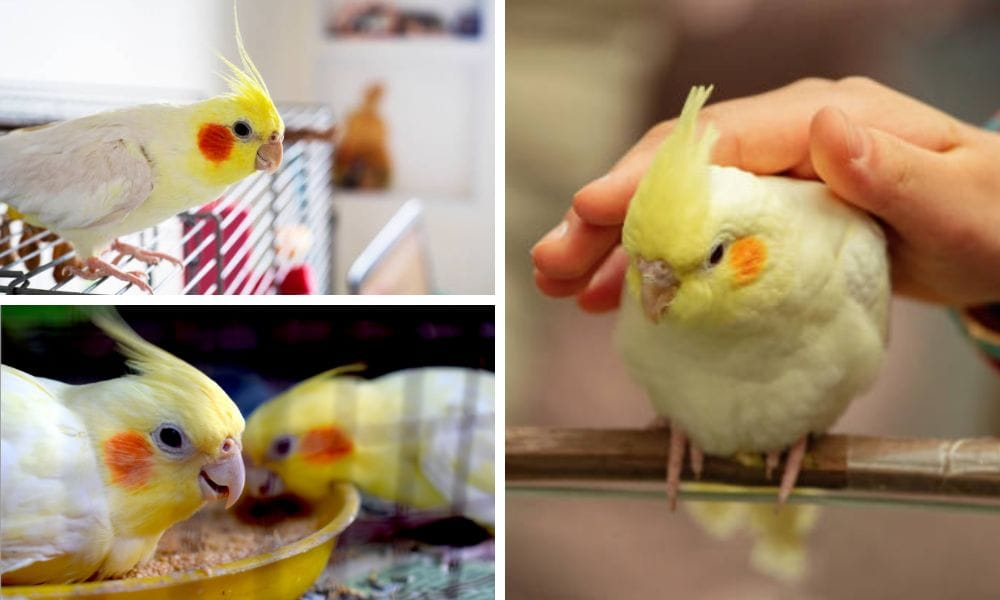
pet bird
The Role of Calcium and Amino Acids in a Cockatiel's Diet
Cockatiels in the wild consume a variety of foods that naturally cater to their need for calcium and amino acids, essential for their overall health and eggshell quality. Calcium supplementation is crucial, especially for females laying eggs, as it prevents health issues like egg binding. Cockatiels often ingest small stones or eggshells found in their environment to meet their calcium needs. This natural behavior highlights the importance of including calcium-rich foods such as cuttlebone or mineral blocks in the diets of pet cockatiels to mimic their wild counterparts.
Amino acids, the building blocks of proteins, are vital for maintaining a cockatiel's feather health and regenerative processes. In the wild, cockatiels eat a variety of seeds, which provide some amino acids, but they also need other protein sources to achieve a balanced diet. Introducing sprouted seeds, which are higher in protein than their dry counterparts, can significantly enhance the amino acid profile of a cockatiel's diet. Pet owners should ensure that their cockatiels' diet includes a mix of seeds, pellets, and fresh foods to closely replicate the nutritious food available in the wild.
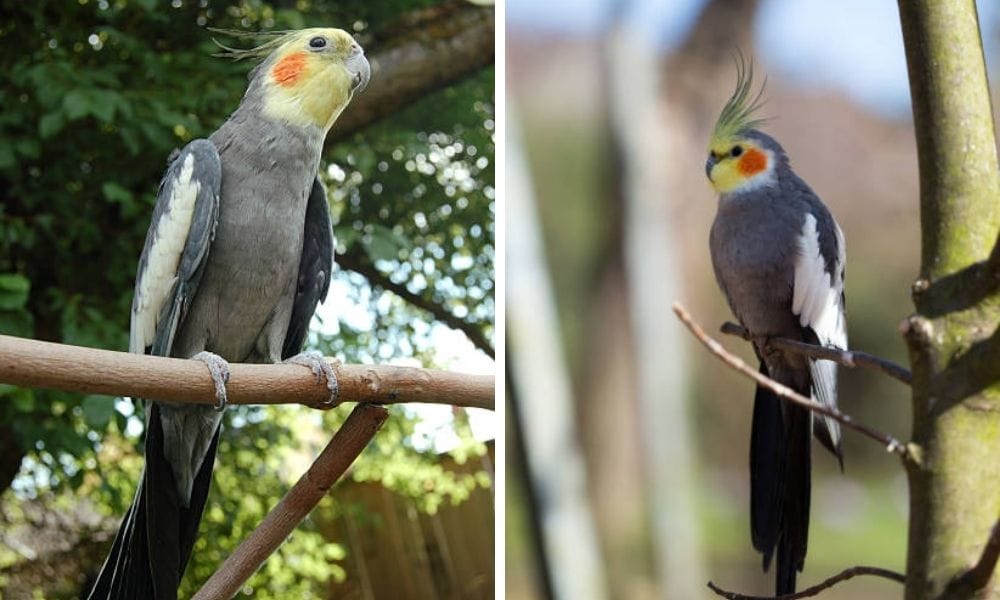
Understanding the Risks of Feeding Cockatiels Dairy and Alcoholic Beverages
It's essential for cockatiel owners to recognize that not all human foods are safe for their feathered friends. Dairy products, for instance, are not a natural part of a cockatiel's diet. Birds lack the necessary enzymes to properly digest lactose found in milk and other dairy products, leading to potential digestive upset or more severe health problems. Instead of offering cheese or yogurt, owners should provide calcium-rich alternatives like dark, leafy greens or calcium-fortified foods specifically designed for birds.
Similarly, alcoholic beverages are extremely harmful to cockatiels, potentially leading to serious health issues or even death. The metabolism of birds is not equipped to process alcohol, making even small amounts dangerous. Responsible cockatiel owners should ensure that their pets are never exposed to alcohol and should be cautious about leaving drinks unattended. Instead, providing fresh water in a shallow dish and ensuring it is changed daily will help maintain the health and hydration of their cockatiels.
Importance of Diverse Foods in a Cockatiel's Diet
Cockatiels in the wild don’t just survive on seeds; they have a varied diet that includes different foods found in their environment. A good quality seed mix should be part of this variety, ensuring that cockatiels receive a broad range of nutrients. This variety is crucial for providing a well-rounded intake of nutrients. Cockatiels eat fruits and vegetables they find in their habitat, which supply essential vitamins and minerals. These can include anything from the fruits of native plants to pale vegetables, which contribute to their overall health and vitality. This diversity helps in preventing nutritional deficiencies that are common in pet birds fed a monotonous diet.
Moreover, the inclusion of fresh fruits and vegetables in a pet cockatiel’s diet is equally important. Offering these foods in a separate dish, alongside their regular seed mix, ensures that cockatiels receive a spectrum of nutrients, mimicking the balanced diet they would have in the wild. Additionally, these fresh items provide moisture and an extra source of hydration, which is beneficial, especially in drier environments. Pet owners should continually strive to replicate this variety, ensuring their cockatiels get a mix of seeds, fruits, vegetables, and pelleted food for optimal health.
Importance of Water and Moist Foods in a Cockatiel's Diet
Water plays a pivotal role in the health of cockatiels, just as it does for all living creatures. In their natural habitat, cockatiels ensure they stay hydrated by frequenting water sources, which is vital for their overall well-being and aids in digestion. Additionally, the consumption of moist foods such as fresh fruits and vegetables contributes to their water intake, providing essential hydration alongside vital nutrients. This aspect of their diet is crucial, especially during the dry seasons or in arid environments where water can become scarce.
For pet cockatiels, ensuring access to fresh water daily is non-negotiable. Owners should continually strive to provide a variety of moist food items in a separate dish, which can include fresh vegetables and fruits cut into small, manageable pieces. These not only supplement the bird's water needs but also add diversity to their diet, mimicking the range of different foods cockatiels would encounter. This practice helps in maintaining a well-balanced diet and prevents health problems related to dehydration and poor nutrition.
Understanding the Nutritional Needs at Different Life Stages of Cockatiels
Cockatiels, like many other living creatures, require a proper diet that varies depending on their different life stages. Extremely young cockatiels, or hand-raised babies, require a diet rich in protein to support their rapid growth and development. This often includes high-quality formulated diets that are finely ground to make consumption easier. As they mature, the dietary focus shifts towards maintaining health through a balanced mix of seeds, pellets, fruits, and vegetables, supplemented with specific vitamins and minerals like calcium to prevent egg binding in females.
For senior cockatiels, the dietary emphasis should be on easier digestibility and maintaining a healthy weight. Older birds may benefit from softer seeds, millet spray, and even small amounts of high-quality commercial seed mixes that include varied diet options. It’s crucial for owners to continually strive to adapt the diet to meet the evolving needs of their pet cockatiels, ensuring they receive the proper balance of nutrients to support their health through different life stages. This approach helps replicate the natural progression of dietary changes that cockatiels experience, promoting longevity and reducing common health problems.
Understanding the Impact of Treats on Diet
The Role of Treats in a Cockatiel's Diet
Treats can be a delightful addition to a cockatiel's diet but should be given in moderation. Foods like millet spray and honey sticks are enjoyed by cockatiels but should be considered treats rather than staple diet items. These treats, while delicious, often do not provide the complete nutritional profile needed for a healthy diet. They should be used as tools for bonding and training rather than as main food sources. This helps in preventing issues like obesity and nutritional imbalances, which can lead to serious health problems in pet birds.
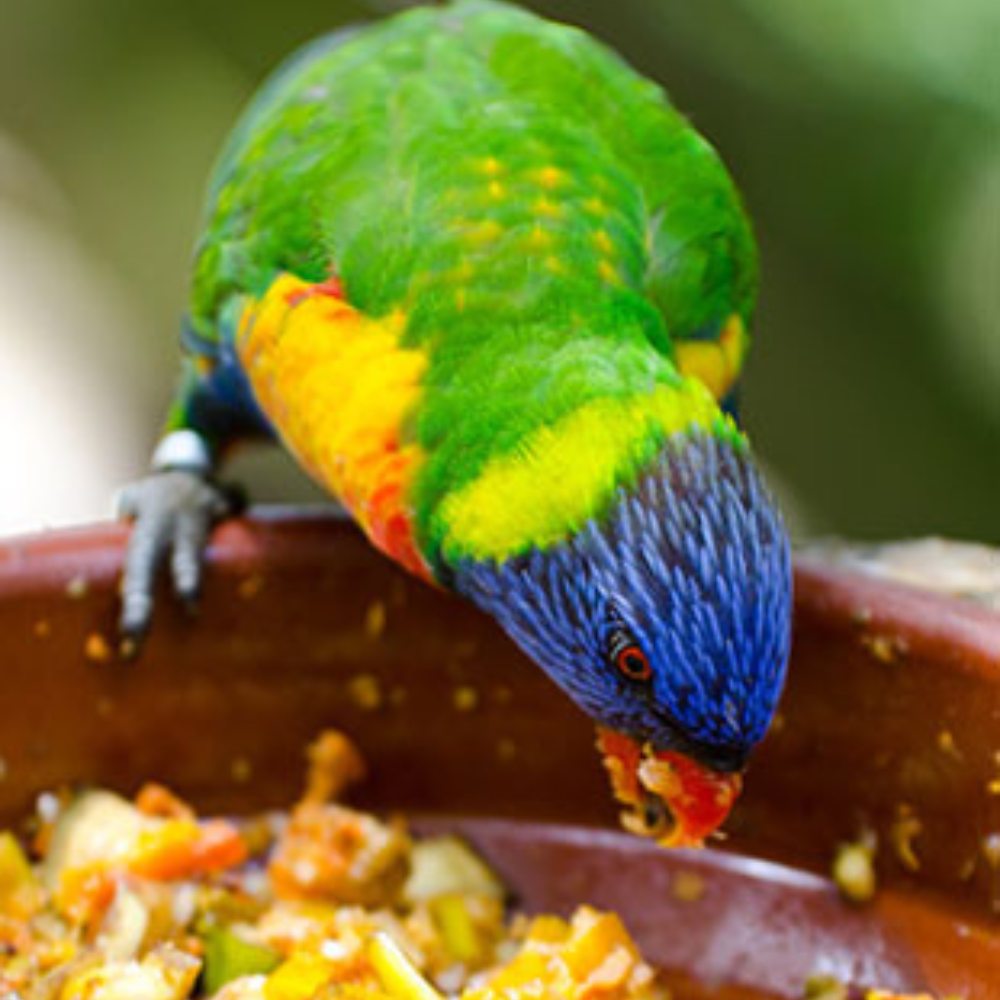
Choosing Healthy Treat Options
For those looking to enrich their cockatiel's diet with treats, it's important to choose items that offer nutritional benefits in addition to enjoyment. Fresh fruits and vegetables, for instance, can be excellent treats that not only entertain but also provide vitamins and fibers necessary for a well-rounded diet. Foods like small pieces of apple, carrot, or even dark, leafy greens can be offered in a separate dish to encourage foraging behavior. Always ensure that any treat offered is safe for birds, as some human foods can be potentially toxic to them.
Foraging and Feeding Behavior
Cockatiels are adept foragers, often flying long distances to find food. They typically feed in flocks, which may help in locating food sources more efficiently and offers protection against predators. Observing their foraging behavior in the wild can teach pet owners about the importance of mental stimulation and activity for these birds.
In the wild, the search for food engages various skills, suggesting that environmental enrichment should also be a part of captive cockatiels' lives. Providing toys and puzzles can mimic the mental challenges they would face in nature, contributing to their overall well-being.
Impact of Diet on Health
The natural diet of cockatiels is finely tuned to their physiological needs, providing them with the right balance of nutrients. In captivity, however, cockatiels often suffer from nutritional imbalances due to diets heavy in commercial seed mixes, which can lead to health problems such as obesity and nutrient deficiencies.
Pet owners can learn from the wild diet of cockatiels by offering a more varied diet that includes fresh vegetables, high-quality seeds, and pelleted food, which together mimic the nutritional profile of their natural food sources. This approach can help prevent common health issues and promote a longer, healthier life for pet cockatiels.
Conservation and Ethical Considerations
How To Feed Wild Birds? Understanding what cockatiels eat in the wild also has implications for conservation efforts. Habitat destruction can lead to reduced food availability, which in turn can affect cockatiel populations. By promoting and participating in conservation efforts, we can help ensure that wild cockatiels continue to thrive in their natural habitats.
Moreover, ethical considerations arise when we think about the diet of captive birds. Ensuring that pet cockatiels have a diet that is as close as possible to their natural diet is not just a matter of physical health, but also of respecting them as creatures with specific, evolved needs.
Summary
Wild cockatiels enjoy a varied diet that includes seeds, fruits, vegetables, and occasionally insects. Their wild diet is hugely diverse and although the average commercial seed mix may have 4-10 different types of seeds, wild birds may eat as much as 29 different types of seed. This diet changes with the seasons, adapting to the available resources. Pet owners can take cues from the natural feeding habits of wild cockatiels to provide a more suitable and healthful diet for their feathered friends, ensuring they live full and healthy lives.
FAQ
Q: Can cockatiels eat fruits and vegetables? A: Yes, cockatiels can eat a variety of fruits and vegetables, which should be included in their diet to provide essential vitamins and minerals.
Q: What are the main components of a wild cockatiel's diet? A: The main components include various grass seeds, fruits, vegetables, and occasionally insects, depending on the environmental conditions and availability.
Q: How can pet owners mimic the wild diet of cockatiels? A: Pet owners can offer a diverse diet consisting of high-quality seeds, fresh fruits and vegetables, and pelleted food, alongside ensuring their cockatiels have plenty of mental and physical stimulation.

